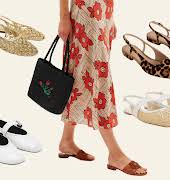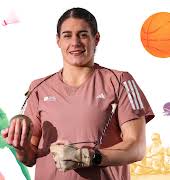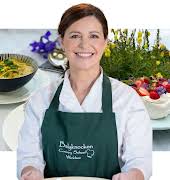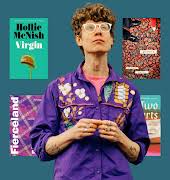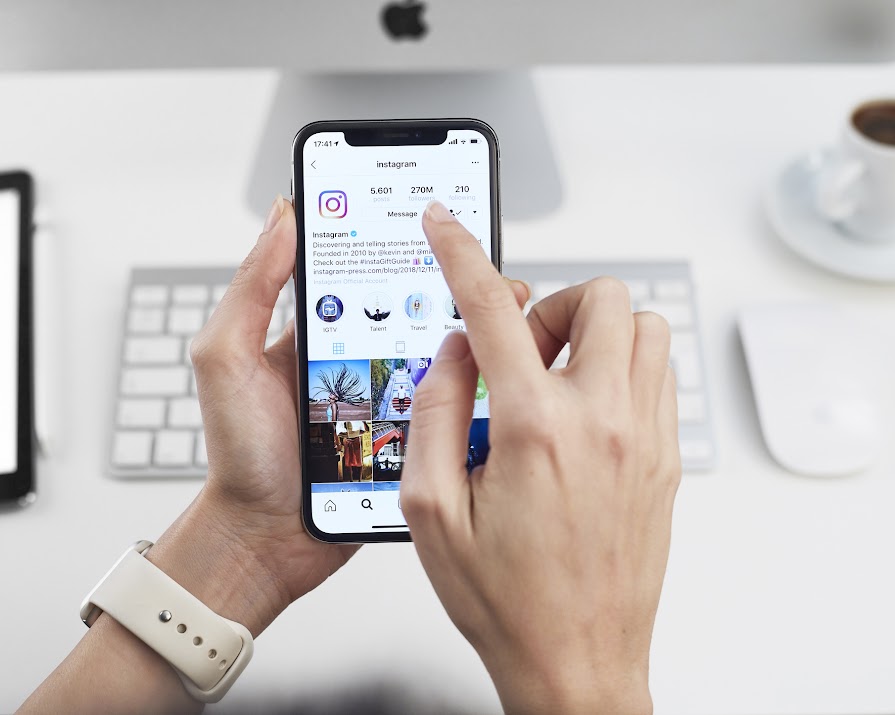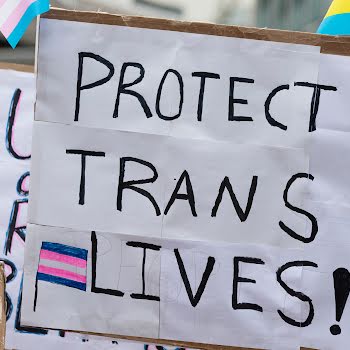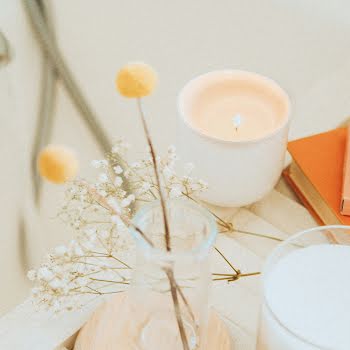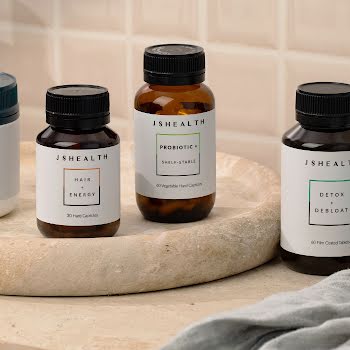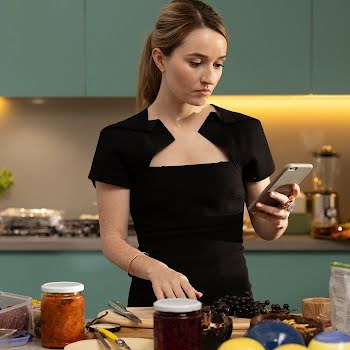The rise of Insta-therapy: Can social media be good for your mental health?
By Roe McDermott
13th Nov 2023
13th Nov 2023
Therapists, psychologists and mental health educators are increasingly using Instagram to share information about mental health and break down stigma and shame around therapy. But how useful can social media posts and "Insta-Therapy" really be?
I’m not great at using hashtags on Instagram. The bulk of my life is spent in oversized pyjama bottoms tapping away on a laptop, which is an even less photogenic lifestyle than it sounds. I usually only post photos when I’m travelling and I’ll throw in a few #travel and #trip tags on my photos, because I am a deeply original and creative person.
However, I do follow a few hashtags. #Raccoons, because those eyelinered, pickpocketing trash-pandas are the most hilarious creatures to roam the universe. And some less whimsical ones. #PTSD. #EmotionalAbuse.
I’ve followed these hashtags for a long time, and Instagram became an unlikely source of comfort and understanding for me when I was struggling, especially given that I didn’t have many people in my life who had experience with emotional abuse or PTSD.
Following the hashtags became an easy way to access information and validation, and articulated ideas and feelings I had struggled to put into words. Sometimes I learned something new; sometimes I got a book recommendation; sometimes people identified things as symptoms that I didn’t realise were connected to PTSD or abuse recovery. And a lot of time I just felt less alone; felt less crazy about my PTSD experiences, and felt less stupid and pathetic for having fallen for an abusive person, given the number of other people who were out there, just trying to survive and recover, too.
“Having therapists and therapeutic concepts posted openly online also destigmatizes and demystifies therapy, showing people that help is available.”
I was in therapy and wasn’t relying on Instagram as my main mental health resource, but sometimes an idea or concept would pop into my feed that I could think about, research, or even discuss with my therapist. I never discussed these hashtags with anyone; it seemed ridiculous, frivolous and naïve to think that an app filled with memes, models, ads for weight loss tea and a deep fear of women’s nipples could actually be a useful resource for my mental health.
So-called ‘Insta-therapy’
But over the past few years, Instagram and mental health education have carved out a unique and ever-evolving relationship. Inaccurately dubbed ‘Insta-therapy’ – a term many therapists object to as Instragram posts in no way resemble the personal relationship and treatment between a therapist and patient – this trend nevertheless highlights the increasing amount of therapists, psychologists and relationship experts using Instagram to post about mental health.
Many therapists focus on making basic mental health ideas simple, digestible and actionable.
Author Amber Rae shares cutesy graphics and fairly generic self-care posts, but will also include posts titled ‘What To Say And Not Say When Someone You Love Is Struggling’, advising people not to respond to a person’s expression of pain with “This is how you should fix it…” or “Let me know if you need help” which can be silencing and prescriptive, but rather by asking questions such as “What do you need right now?” and “Is there anything I can do to support you?”
“The benefits of having therapists and mental health educators use Instagram is multi-faceted. As it’s free and used by a lot of young people.”
Dr. Kelly Vincent’s soothingly muted graphics also includes posts about how to support loved ones who are struggling, along with more in-depth posts on how to recognise the signs of a controlling relationship, or columns outlining the difference between the baby blues, postpartum depression and anxiety.
Dublin-based therapist Sarah Jane Crosby uses cartoons of sticky notes to outline concepts like gaslighting, imposter syndrome, narcissism and harmful myths surrounding suicide. PTSD specialist Natalie Y. Gutierrez explains how PTSD affects people’s emotional processing and nervous system.
Therapist Elizabeth Earnshaw posts a lot of scripts for different situations, such as how to apologise, how to respond to defensiveness during a disagreement, how to clearly set boundaries. Relationship coach Silvy Khoucasian also shares scripts, such as ‘Ways To Set Boundaries During Conflict’, which include suggestions like saying “Could you bring your tone down a bit so I can stay present?” and “I really need my perspective validated before I can continue”.
Mental health education
The benefits of having therapists and mental health educators use Instagram is multi-faceted. As it’s free and used by a lot of young people, Instagram provides low-barrier access to mental health information and awareness for people who haven’t yet sought out therapy, who can’t afford it, or for whom therapy and openly discussing mental health is seen as taboo in their social circles.
It improves people’s fluency and literacy around mental health by introducing basic mental health concepts, symptoms, resources, and giving outlines of communication or support techniques for people who want some ideas of how to support someone in their life who is struggling.
“The American Psychological Association has been working on developing guidelines for its members and for social media, to ensure that licensed therapists use Instagram responsibly.”
Having therapists and therapeutic concepts posted openly online also destigmatizes and demystifies therapy, showing people that help is available. Seeing posts about mental health beside holiday snaps and makeup tutorials on such a hugely popular platform is itself normalising. Seeing the huge amount of people who like or comment on posts also conveys that there is no shame in struggling with mental health, discussing mental health, or going to therapy.
Simplified and broad
Like my experience, Instagram posts about mental health can also introduce ideas or articulate feelings that be researched in more detail or discussed with a therapist.
But therein lies the difference between Instagram posts about mental health, and actual therapy – and why even therapists object to the term ‘Insta-therapy.’ Instagram posts are not tailor-made or personal, but simplified and broad.
They’re not interactive or based on a personal, in-depth understanding of an individual’s lived experience. They are not intended to treat or diagnose anyone, nor be a replacement for therapy. And the ability to pick and choose which posts feel comfortable or resonant and familiar removes the sometimes challenging nature of therapy, and the sense of growth.
Instagram posts about mental health are like chapter titles; they outline basic concepts and trajectories. But therapy is the real work.
Guidelines
For these reasons, the American Psychological Association has been working on developing guidelines for its members and for social media, to ensure that licensed therapists use Instagram responsibly.
Nevertheless, some therapists who are utilising Instagram still have huge, ever-growing followings. Dr. Nicole LePera’s posts on healing, boundaries and grief have attracted 7.5 million followers.
Therapist Lisa Olivera has nearly 445,000 followers – and Olivera, in particular, is very aware of the responsibility that comes with such a huge following.
Lisa Olivera includes posts on how to navigate therapy or mindfulness-related posts on Instagram, including questions like: “Does this work for me and my unique lived experience? Can I read something and know if it isn’t meant for me, and can I let that be okay?…Am I making room for curiosity and flexibility within what I see here?”
“What we are collectively doing on Instagram matters and while it is absolutely not therapy, it’s making a difference in a new way and is so inspiring to be a small part of.”
She also posted a fascinating essay on Medium about this growing trend of Insta-therapy content, acknowledging both its limitations and its possibilities.
“Therapists on Instagram acknowledge the fact that no square, post, or tool can capture the complexity of being human,” Olivera writes. “No single post can capture the essence of every individual’s experience or replace working one on one with someone. We understand and recognize the fact that Instagram is not a substitute for a therapeutic relationship.”
However, she continues, “we provide resources, tools, insights, reminders, community, and support for people who are not in therapy, for people figuring out how to access therapy, and for people in therapy. I frequently hear about how helpful it is for folks to have reminders between sessions, have tangible tools to talk about in sessions… What we are collectively doing on Instagram matters and while it is absolutely not therapy, it’s making a difference in a new way and is so inspiring to be a small part of.
“I hope this can be an ongoing conversation that we can continue exploring in order to keep showing up.”


